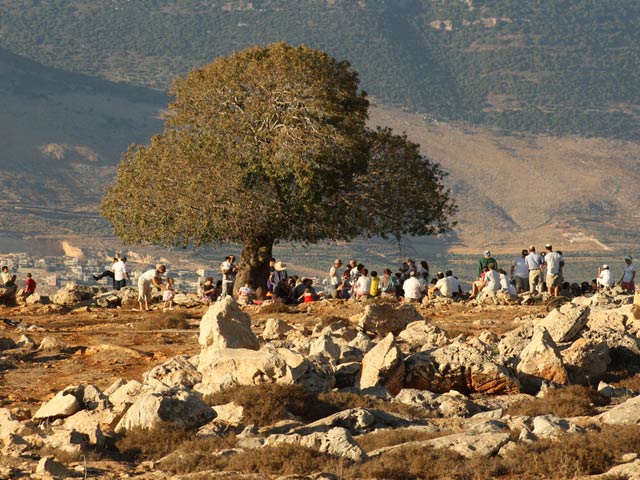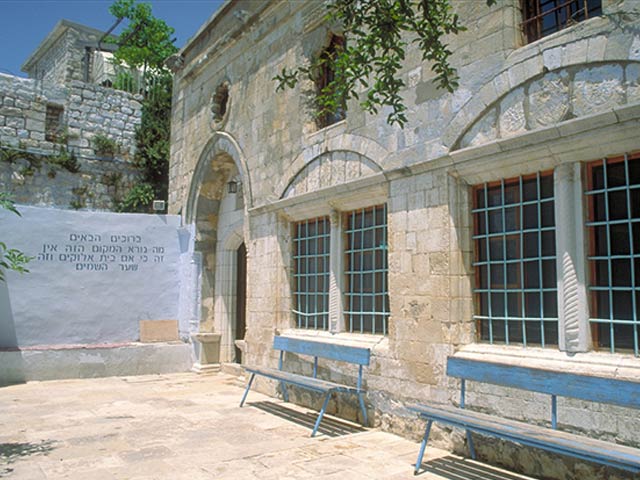By Rivka Borochov
About 80 Israeli synagogues from across the country are competing to be the greenest in the land, thanks to a contest staged by the organizations
Teva Ivri (“Hebrew Nature”), Council for a Beautiful Israel and Green Now.

Teva Ivri works toward a more sustainable Israel
To win the award for “synagogue sustainability,” the house of worship will have to show that it ensures access to the disabled; engages the wider community in the study of social-environmental issues; uses energy-efficient lighting; conserves natural resources by reducing, reusing and recycling; has developed outdoor spaces for secure play and inspiring learning; and generally “serves as a model of how humans take responsibility for God’s creation.”
The winner will be announced in October during Teva Ivri’s annual Sustainability Shabbat centered around the reading of the biblical story of Noah’s ark.
“In galvanizing communities to green their synagogues, we are emphasizing that the institution that has guided the Jewish people for over 2,000 years can be relevant to our efforts toward environmental protection and better quality of life,” says Weitzman Mashiach, deputy director of the Council for a Beautiful Israel.
The contest has generated interest from prominent religious leaders and educators in Israel, said Mashiach. Tel Aviv Chief Rabbi Yisrael Lau will preside over the evaluation committee. The co-chair of the committee will be Prof. Zechariah Madar, head scientist of the Ministry of Education. Meanwhile, the Association of Religious Councils in Israel is spreading the word to actively recruit synagogues for the competition.
Jewish environmental values
Einat Kramer founded Teva Ivri four years ago, aiming to use traditional Jewish sources as a spark for both religious and secular Israelis to get involved in protecting the planet. Hoping to take her message universal, she was recently part of an Israeli delegation to the Rio+20 United Nations conference in Brazil (June 20-22, 2012), where she presented a paper on how Jewish values can be the basis for greener economies.
The ecological synagogue contest puts the spotlight on Israel, where environmentalism has deeply ingrained biblical roots, says Kramer. For example, there is a strong connection between the land and the three major religious holidays – Passover, Shavuot and Sukkot -- which coincide with agricultural seasons and harvest cycles.
Yet because Israeli Jews have less need to identify with their communities through institutions than do Jews in the Diaspora, focusing on neighborhood synagogues is a new approach.
In America, many Jewish communities have already built LEED-certified synagogues powered by renewable energy such as solar panels. This isn’t generally so in Israel, despite the Jewish state’s many advances in clean technology that could be harnessed for the cause.
According to Teva Ivri’s website, the organization is “happy to provide guidance to any community in Israel looking to ‘go green.’ We also invite Jewish communities from abroad to support their Israeli counterparts as they take on more environmental responsibility.”

Abuhav Synagogue in Safed. Can Israel make its synagogues greener?
Yet because Israeli Jews have less need to identify with their communities through institutions than do Jews in the Diaspora, focusing on neighborhood synagogues is a new approach. In America, many Jewish communities have already built LEED-certified synagogues powered by renewable energy such as solar panels. This isn’t generally so in Israel, despite the Jewish state’s many advances in clean technology that could be harnessed for the cause.
According to Teva Ivri’s website, the organization is “happy to provide guidance to any community in Israel looking to ‘go green.’ We also invite Jewish communities from abroad to support their Israeli counterparts as they take on more environmental responsibility.”